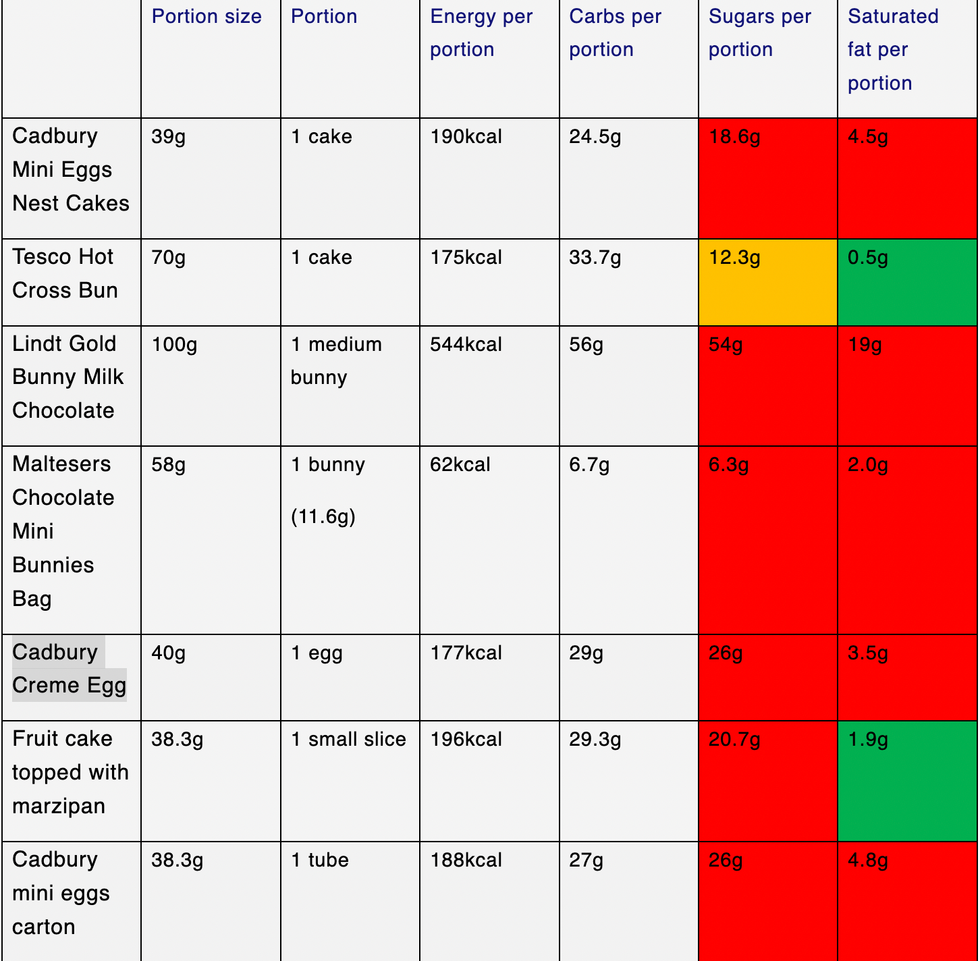Eating Easter eggs can cause dangerous spikes in insulin and blood sugar that last longer
Getty Images
- Sugar at night causes insulin and blood sugar spikes that lasts longer
- Sharp rises in blood sugar and insulin 'fast track' to diabetes
- The carb content of Easter eggs could drive obesity
- Warning comes after NHS doctor urged moderation
Don't Miss
Most Read
Trending on GB News
Eating Easter eggs at night can lead to dangerous spikes in blood sugar and insulin that can "fast track" your way to diabetes, a pharmacist warns.
It comes after an NHS doctor last week warned Britains to not eat a whole Easter egg in one sitting as rates of obesity and diabetes rise to record levels in the UK.
The Essex NHS chief is coming under fire for his comments but they should not be dismissed out of hand, opines pharmacist Graham Phillips.
The Founder of lifestyle programme ProLongevity tells GB News that the sugar content of Easter eggs is a "fast-track to developing diabetes”.

Blood sugar spikes can cause headaches and blurred vision
Getty Images
According to the pharmacist, the time of day matters too: “It’s usual to crack open an Easter egg in the evening and enjoy it in front of the TV with the family, but there are increased risks when they are eaten late at night."
As he explains, eating sugar and carbohydrates late in the day is the worst for your health. It forces the body to produce a big insulin spike and the sugar spike lasts longer.
Blood sugar spikes can cause headaches, dizziness and blurred vision, warns the NHS.
"Eventually the excess sugar is dragged from the bloodstream into the liver where it is processed into fat and then stuffed into your over-full fat cells. Next step? Diabetes," Phillips warned.
According to the NHS, adults should have no more than 30g of free sugars (any sugar added to food such as chocolate) a day, which equates to roughly seven sugar cubes.
However, a Diabetes UK chart based on 2023 data shows that the average Easter egg contains more than half of the daily limit. A Lindt Gold Bunny Milk Chocolate contains 54g of sugar - almost double the daily limit.
This can cause a cascade of health problems. As the pharmacist explains, a diet high in sugar, carbs and processed foods which spike your blood sugars can lead to permanently raised insulin levels, also known as insulin resistance.
This complication is common in people with metabolic syndrome - a cluster of conditions that increase your risk of type 2 diabetes, heart disease, cancer and dementia.
The sugar content is not the only hidden health risk: Easter eggs are also loaded with carbs.
LATEST DEVELOPMENTS

A Lindt Gold Bunny Milk Chocolate contains 54g of sugar - almost double the daily limit, chart shows
Diabetes UK
"Carbs break down into sugar when digested and the body can’t tell the difference irrespective of where the sugar came from," warned Mr Phillips.
There have been numerous studies and arguments about what (or who) is to blame for our obesity crisis. For the pharmacist, the picture is really not that nuanced: "Carbs are a killer and are one of the main reasons for our record levels of obesity and type 2 diabetes."
Editor's take
We have enough data to show that overindulging in sweet treats is bad for your health. However, moderation is key and think about what else you are having this weekend alongside Easter eggs.
For example, a heavy night of booze will compound these effects.
I agree that we should be wary of overeating Easter eggs. I am also sympathetic to the view that being told what to do can feel paternalistic and patronising. It arguably also distracts from other more serious health emergencies, such as the state of our NHS.








